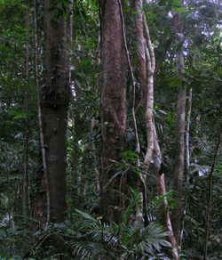Research Paper Topics on Environmental Issues
Humans in industrial and postindustrial societies seem to have conquered the limitations placed on them by the environment through the use of technology. However, we actually live in a sensitive ecosystem in which humans and their physical environment interact and are interdependent. Harming the environment can have negative effects on the humans in it as phenomena such as the greenhouse effect, global climate change, and thermal pollution demonstrate. We live in a society that is the result of rapid changes in technology that have affected our lives. However, with every potential benefit comes a concomitant risk. Although technological advancements should not be stifled, it is important that they also be implemented with consideration for the uncertainty of their effect on the human ecosystem.
Keywords Economic Development; Environment; Ethics; Greenhouse Effect; Human Ecosystem; Industrialization; Postindustrial; Preindustrial; Society; Sociocultural Evolution; Technology; Thermal Pollution
Overview
Increasingly, the impact of humans on the environment has become an issue of social concern. The ever-decreasing availability of sources of fossil fuels and contemporary society's ever-increasing need for it to run its technology is a concern in and of itself. However, when the use of chlorine- and bromine-based products creates a hole in the ozone layer, this becomes an issue of immense and far-reaching proportions. Although this might seem to be a simple matter of doing what is right, the interaction between society and the environment is a political one as well, and it is often difficult to reach consensus on an operational definition of what is right. For example, although legal limits may be in place in a society that cap the amount of certain kinds of pollution that a single organization is allowed to produce, is it ethical to also have a system of pollution credits (i.e., a system in which a business that produces more pollution of a given type than legally allowed is able to purchase "credits" from a business that produces less pollution than is allowed) if one's aim is truly to reduce or eliminate pollution?
Human Relationship with the Natural Environment
Humans have always depended upon the natural environment. The natural environment provides us with the raw materials necessary to feed ourselves and our families and to build our technologies, whether they are spears and baskets for hunting-and-gathering societies or harnessing sources of energy for industrialized societies. In earlier stages of sociocultural evolution, this relationship between humankind and nature was arguably easier to see. Prehistoric humans tended to live in more temperate zones where they could find year-round supplies of food and needed little shelter from the elements or lived nomadic lifestyles in order to have a continual source of food and sufficient shelter. In twenty-first-century industrialized nations, however, people tend to buy their food at supermarkets and retreat into their human-built homes for their air conditioning or heat. Yet even with high-tech approaches to farming, people are still dependent on the sun to shine, the rain to fall, and the temperature to remain within a certain range over a window of time in order to have sufficient food to eat. The demands of industrialization require that we use our natural resources in order to run our technology. However, the demands of future generations mean that we must use these resources wisely and in a sustainable manner so that society does not stop because of our lack of concern.
Environmental Movement
The modern environmental movement began as societies came to realize that many of the things that were being done to improve or use technology to make life better in the short term were simultaneously having a negative impact on the environment and making life worse in the long term. Ecosystems are systems in which organisms and their environment interact and function as a unit. In ecosystems, the various parts (i.e., organisms and environment) are interdependent on each other and function as a unit. For example, animals breathe in oxygen and expel carbon dioxide to live. They also either eat plants or eat other animals that eat the plants. The plants, in turn, require the use of the carbon dioxide expelled by the animals and, in turn, expel oxygen that is used by the animals. When the animals die, their bodies decompose and provide nutrients that enrich the soil and help the plants grow in a continuing cycle of interdependence. Human ecosystems are ecosystems that include human beings. As in other ecosystems, in human ecosystems, the parts are interdependent and function together. Obviously, human beings — even in the postindustrial age — are dependent on clean air, clean water, sunshine, and other essential elements of the natural environment to survive. Similarly, the natural environment is affected by pollution and other artifacts of human civilization. If the negative impact of human civilization becomes too great, the natural environment is harmed (e.g., greenhouse effect, global climate change). If the natural environment is harmed too much, the human part of the ecosystem will have to change in response if it hopes to survive. Done early enough in the cycle, this may mean doing relatively simple things as recycling and finding alternate energy sources. If the damage caused by humans is allowed to go unchecked for too long, however, the human ecosystem may be harmed to the point that society may have to find new ways to survive, may go backward on the sociocultural evolutionary scale, or may even become extinct.










